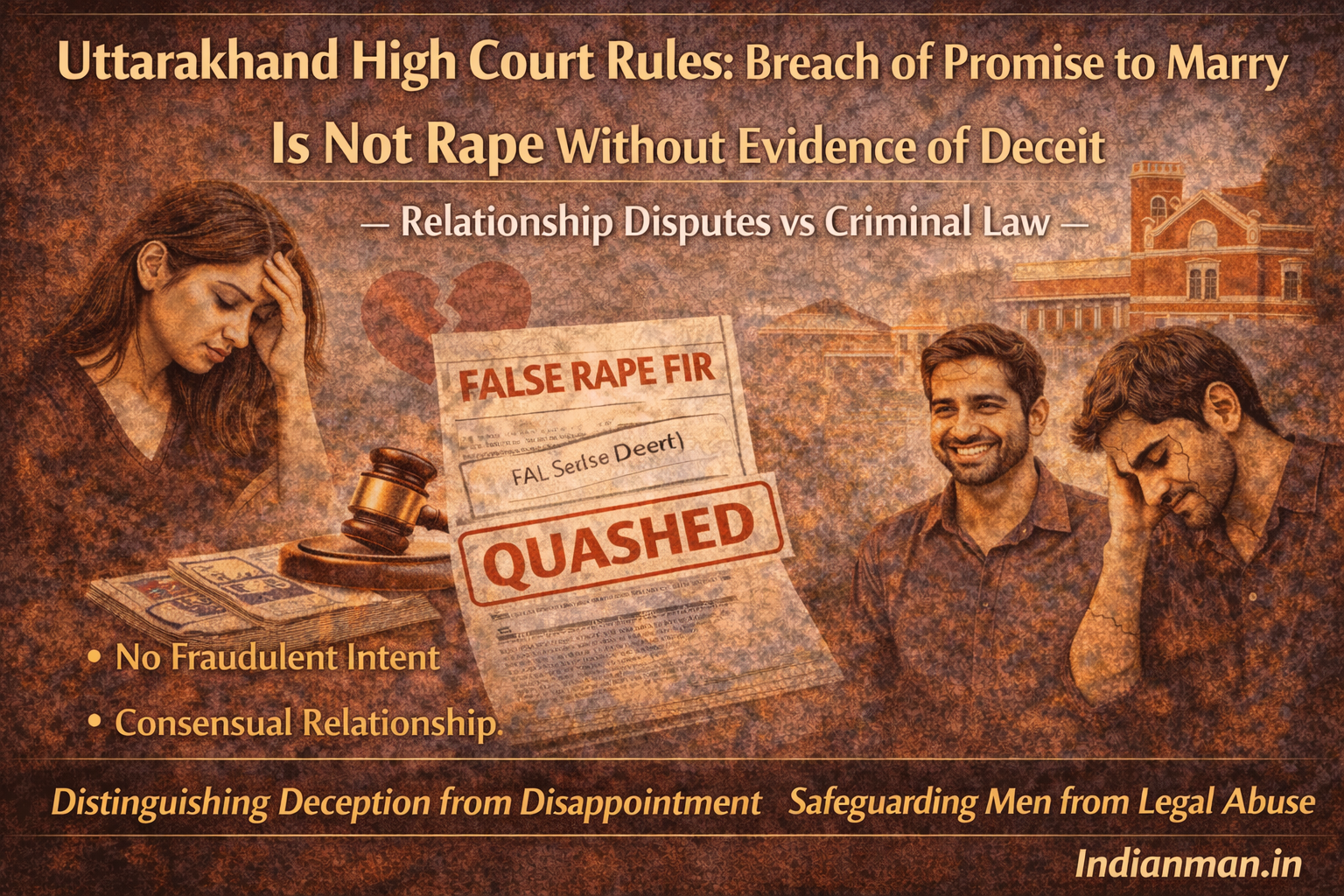The Bombay High Court has quashed an FIR and chargesheet against a man accused of rape based on a false promise of marriage. The court observed that the victim, a college student, had sufficient intelligence to understand the act’s morality and significance.
The bench of Justice Vinay Joshi and Justice Vrushali V. Joshi was hearing an appeal to quash the FIR and chargesheet under Section 376(2)(n) of the Indian Penal Code and sections of the Scheduled Caste and Scheduled Tribe (Prevention of Atrocities) Act, 1989.
The court noted, “The victim was a grown-up girl studying in engineering. She had enough intelligence to understand the act’s moral quality and consented to the relationship. Efforts were also made by both families to arrange the marriage during the initial two years.”
The prosecution alleged that the accused had sexual relations with the victim under the false pretext of marriage, which vitiated her consent and constituted rape. The court referred to the Supreme Court’s decision in Pramod Suryabhan Pawar vs State of Maharashtra (2019) 9 SCC 608, which established that for consent to be vitiated by a misconception of fact, the promise of marriage must have been false, given in bad faith, and not intended to be fulfilled at the time.
The court held that the consent was not obtained by misrepresentation, as both parties had known each other for years, frequently met, traveled together, stayed at each other’s houses, and engaged in a sexual relationship for five years. The court stated, “To constitute the offence, the promise of marriage must have been a false promise, given in bad faith, and with no intention of being adhered to at the time it was given.”
The court found that the relationship was not clandestine, as the accused had disclosed it to his parents and had taken steps to arrange the marriage. Additionally, the victim’s behavior had changed, and she allegedly harassed and pressured the accused, leading him to file a police report expressing concern about false accusations.
The court concluded that there was no deceitful intent on the part of the accused and that the material collected indicated it was not a case of obtaining consent by a false promise to marry. Consequently, the court quashed the FIR and set aside the chargesheet.
The application to quash the FIR and chargesheet was allowed by the court.




